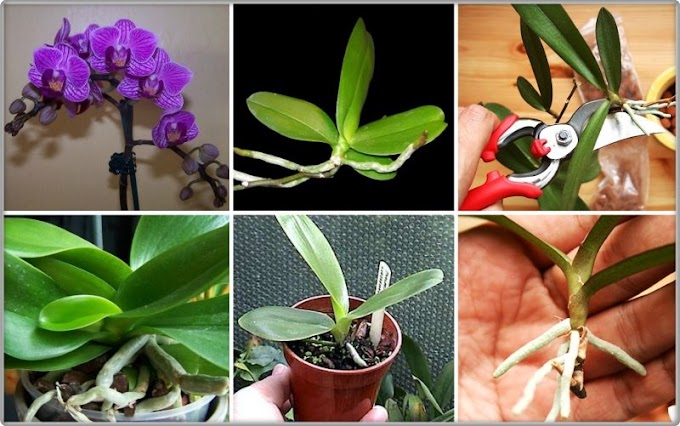The leaves are smooth, thick and fleshy, up to 3 inches (7.5 cm) long, and paired on opposite sides along the stems.
Twenty or more star shaped flowers up to 0.5 inch (1.5 cm) across, typically light pink (but may vary from near-white to dark pink), are borne in pendulous convex clusters, 2 or 3 inches (5 or 8 cm) across. The leaves and the flowers are often described as “waxy”.
- Scientific Name: Hoya carnosa
- Common Names: Wax Plant, Porcelain Flower
- Synonyms: Asclepias carnosa, Cynanchum carnosum, Schollia carnosa
- Family: ApocynaceaeSubfamily: AsclepiadoideaeTribe: Marsdenieae
- Genus: Hoya
- Subfamily: Asclepiadoideae
- Tribe: Marsdenieae
Hardiness:
USDA hardiness zones 10a to 11b: from 30 °F (−1.1 °C) to 50 °F (+10 °C).
 |
| source pic: Pinterest |
How to Grow and Care
Hoya plants don’t ask for much, beyond the well-draining soil and the warm, humid conditions that many tropical flowers crave. You can grow the hoya if you live in USDA growing zones 10 through 12, elsewhere you must grow it as a tropical container plant or greenhouse specimen.
Choose a location with full to partial sun. Plants that receive less than a half-day of sunlight may not produce flowers. Hoyas don’t like wet feet or heavy soil, and as many grow as epiphytes in nature (similar to bromeliads and orchids). Mixing your regular potting soil with orchid potting mix in a 1-to-1 ratio will provide an ideal growing medium for your hoya plant. Hoyas will bloom throughout the summer months, and you should bring them indoors when temperatures drop below 50 F.
Hoya Flower Care:
When your hoya plant finishes blooming, leave the flower stalk, as it may produce new flowers. Removing the stalk forces the plant to produce a new stalk, which delays blooming and wastes the plant’s energy. Hoyas are light feeders, and a monthly drink of compost tea or dilute fish emulsion provides all the nutrition these tropicals need. Hoyas like the security of a snug pot and plants that are a bit root bound will flower more prolifically than those that are swimming around in a giant pot... - Learn more at HOW TO GROW AND CARE HOYA
''Varieties to Try''
- H. Archboldiana: Cup-shaped creamy flowers with a maroon corona
- H. Carnosa: Most common in the trade, an easy hoya for beginners; pale pink flowers with a magenta corona
- H. Compacta "Indian Rope": Pale pink flowers, curly leaves offer interest when the plant isn’t blooming
- H. Cumingiata: Yellow flowers with red corona; fragrant
- H. Kerrii Variegata: Heart-shaped foliage with white margins; yellow and orange flowers
- H. Onychoides: Purple flowers have an exaggerated star shape
Links
Back to genus: Hoya
SUCCULENT PLANTS : Browse succulents by Scientific Name, Common Name, Genus, Family, USDA Hardiness Zone, Origin, or cacti by Genus



